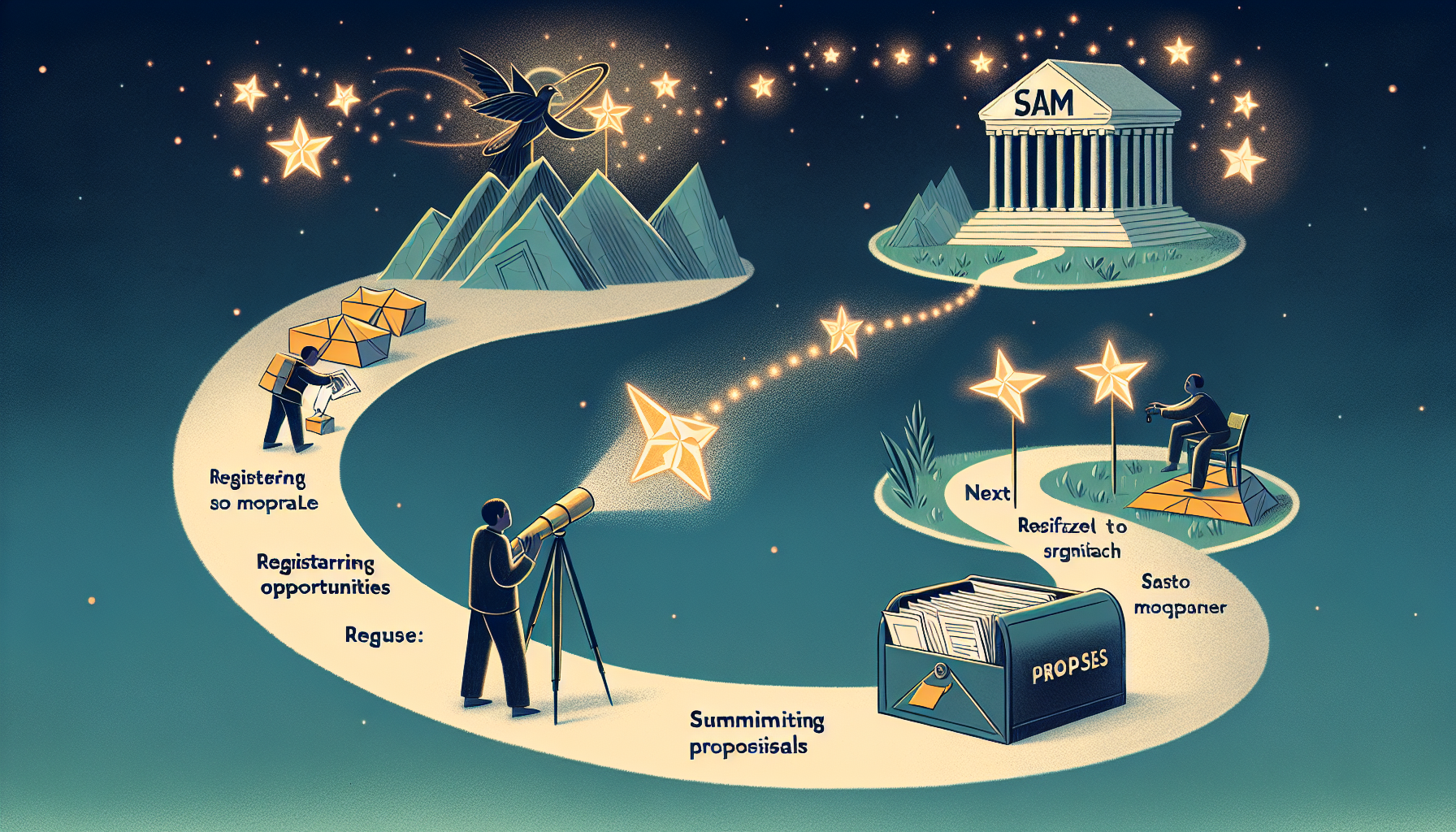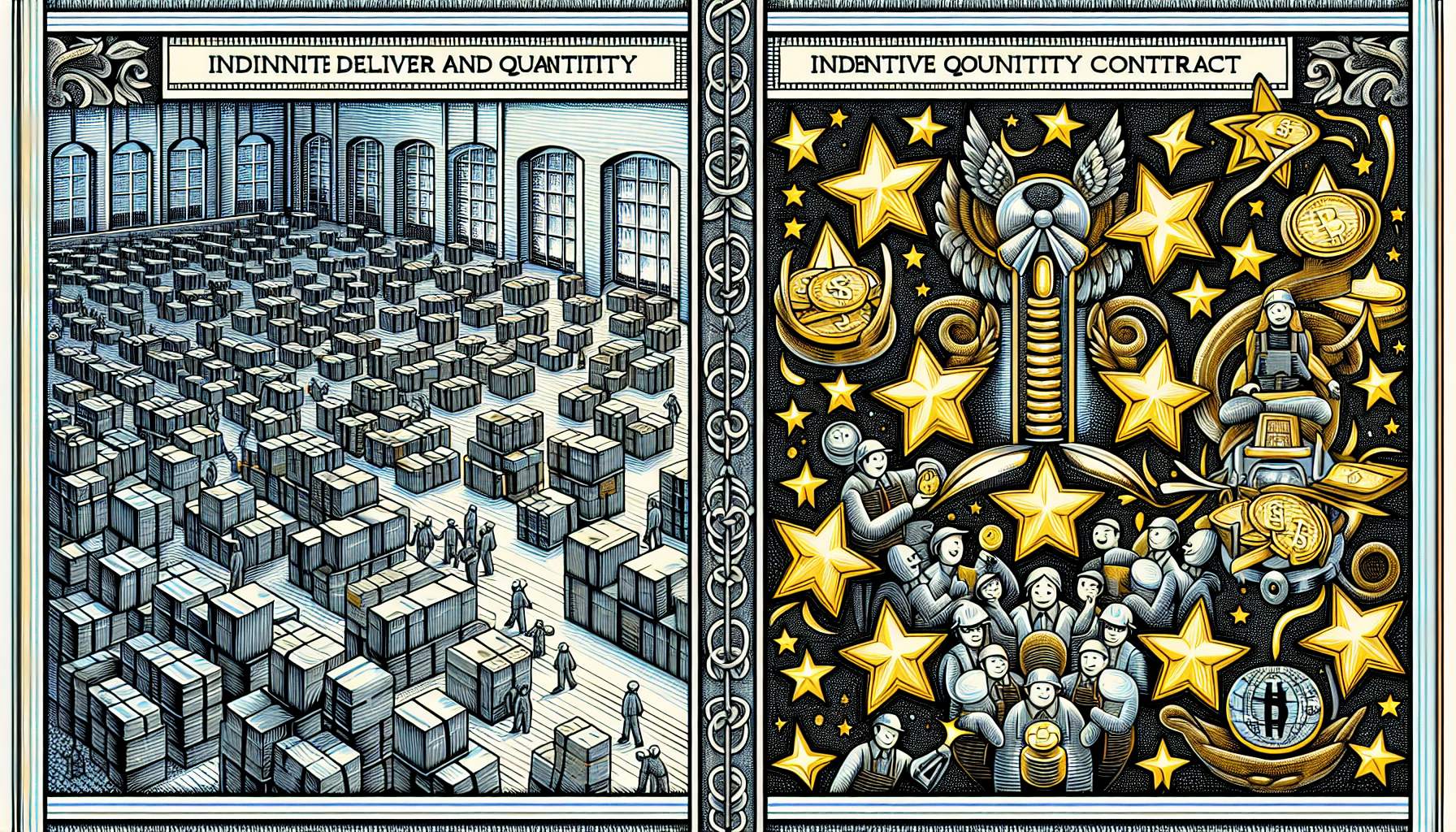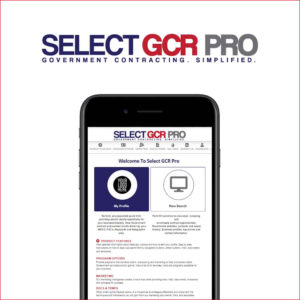Securing a contract with the government can be a game-changer for businesses, offering a stable revenue stream and growth opportunities. This article will guide you through the essentials of government contracting, from understanding different contract types to the steps required to secure a contract with government. Whether you’re new to this field or looking to refine your approach, you’ll find valuable insights here.
Key Takeaways
-
Understanding the different types of government contracts—fixed price, cost reimbursement, and time and materials—is crucial for businesses to manage risks and costs effectively while engaging with government projects.
-
Securing a government contract requires a systematic process, starting from registration on platforms like SAM, identifying suitable opportunities, preparing compelling proposals, and adhering to submission requirements.
-
Working with a contracting consultant can streamline the procurement process, offering valuable insights, proposal preparation assistance, and compliance management to help businesses successfully navigate federal contract requirements.
Basics of Federal Contracting

Federal contracting involves businesses entering into agreements with government agencies to provide products or services in exchange for payment. For many businesses, engaging in federal government contracts can be a significant revenue stream and a catalyst for growth. These contracts not only offer a stable source of income but also enhance a company’s credibility, making it an attractive option for businesses of all sizes.
Grasping the fundamentals of government contracting is paramount. There are various types of government contracts, each suited to different project requirements and risk profiles. There are three primary types of contracts: fixed price, cost reimbursement, and time/materials contracts. These contracts cover various payment structures and terms. Each contract type has its unique characteristics and implications for both the contractor and the government.
We will delve into these types further, beginning with fixed price contracts, then moving on to cost reimbursement contracts, and concluding with time and materials contracts.
Fixed Price Contracts
Fixed price contracts involve:
-
a set price agreed upon for the project, regardless of the actual costs incurred
-
the contractor is responsible for delivering the project within the agreed price, assuming all risks of cost overruns
-
being typically used when the project scope is clearly defined and estimates are reliable.
The fixed nature of these contracts places a significant risk on the contractor, as they must manage all costs effectively to avoid overruns. However, if managed well, these contracts can be highly profitable. They are often used in projects where the risks of cost overruns are minimal, and the scope of work is well-defined.
Cost Reimbursement Contracts
Cost reimbursement contracts, including cost reimbursement incentive contracts, allow the contractor to be paid for all legitimate costs incurred during the performance of the contract. Unlike fixed-price contracts, the government assumes more risk here, as the final cost is determined after the work is completed. These contracts are particularly useful when the project’s scope is uncertain or when it’s difficult to estimate costs accurately beforehand.
There are several types of cost reimbursement contracts, including cost contracts, cost-sharing contracts, and cost-plus-fixed-fee contracts. These contracts are ideal for projects that require flexibility and where the government needs to ensure that the contractor meets specific requirements while managing substantial cost responsibilities.
Time and Materials Contracts
Time and materials contracts have the following features:
-
Contractors are paid based on the time spent on a project and the materials used
-
Ideal for projects with evolving requirements
-
Include hourly labor rates and the cost of materials
-
Provide flexibility when the full scope of work is not known at the outset
This flexibility is particularly useful in dynamic fields such as research and development work or IT projects, where details can change rapidly. Nevertheless, proficient cost management is of utmost importance. Contractors must track labor hours and material expenses closely, maintaining transparency to ensure costs remain within the project’s budget.
Steps to Secure a Government Contract

Obtaining a government contract necessitates a systematic procedure. The journey begins with registering your company at the System for Award Management (SAM) to receive a Unique Entity Identifier (UEI). This registration is vital to ascertain your business’s eligibility for government contracts.
Selecting the appropriate contracts to bid on is key. It’s better to focus on opportunities that align with your expertise rather than bidding on every contract available. It’s crucial to meticulously read the Request for Proposal (RFP) as it encompasses all the requirements, such as project details, timeline, and evaluation criteria.
In order to secure a government contract, businesses must adhere to a systematic process, which involves identifying opportunities, preparing proposals, and submitting them for evaluation. We will delve deeper into each of these steps.
Identifying Opportunities
Identifying federal contract opportunities requires vigilance and the right tools. Here are some essential platforms to help you in your search:
-
System for Award Management (SAM)
-
SAM.gov
-
Dynamic Small Business Search (DSBS)
-
SubNet
-
GSA.gov
Registering with the System for Award Management (SAM) is the first step. Utilizing these platforms will increase your chances of finding federal contract opportunities.
Businesses should also monitor agency-specific websites, as some contracts might be listed exclusively on these sites. The Federal Business Opportunities (FBO) website is another crucial platform. Additionally, attending industry days and pre-solicitation conferences can provide valuable insights into upcoming contracts.
Preparing Proposals
Preparing a compelling proposal is an art. It must demonstrate the value you provide and prove your qualifications. Defining the project’s benefits and how they align with the government’s goals can strengthen your proposal.
Competitive pricing is crucial; pricing too high may result in your proposal being dismissed, while pricing too low may signal low quality. Address each requirement in the proposal clearly to facilitate the evaluation process by government officials. Including specific solutions for the problems outlined in the solicitation helps demonstrate your capability to meet project objectives.
Submission and Evaluation
Submitting a proposal involves the following steps:
-
Adhering to strict deadlines and formats as specified in the solicitation
-
Once submitted, the proposal undergoes a systematic evaluation process
-
The government assesses compliance with requirements
-
The proposal is compared against competing bids
Proposals are reviewed on their technical merits, cost, and your ability to deliver the proposed solution effectively. After submission, they are evaluated based on criteria detailed in the RFP, which can include project details and performance metrics.
Special Types of Government Contracts

Special types of government contracts cater to unique needs and requirements. These include Indefinite Delivery and Quantity Contracts (IDIQ) and Incentive Contracts, each with its applications and nuances.
Governmentwide Acquisition Contracts (GWACs) allow multiple government agencies to purchase goods or services from a single contract vehicle. Blanket Purchase Agreements (BPAs) enable agencies to fill anticipated repetitive needs for commodities, supplies, or services. Other Transaction Authority (OTA) contracts offer flexibility for prototypes, research, and production projects.
Indefinite Delivery and Quantity Contracts
Indefinite Delivery/Indefinite Quantity (IDIQ) contracts are used when the exact times and quantities of future deliveries are not known at the time of contract award. These contracts allow the government to retain technical expertise in areas like construction, repairs, and architectural design for an indefinite period.
IDIQ contracts are ideal for projects requiring on-call status personnel, such as architect and engineering services. They can be used on both a fixed-price and reimbursement basis, streamlining the contract process into one large multi-year contract.
Incentive Contracts
Incentive contracts are designed to motivate contractors by tying the amount of profit or incentive fees payable to their performance. These contracts include cost-plus-incentive-fee and cost-plus-award-fee contracts, which are designed to motivate contractors to control costs and enhance performance.
Fixed price incentive contracts, such as Fixed-Price Incentive (FPI) contracts, include provisions for adjusting profit based on performance. Cost-Plus-Incentive-Fee (CPIF) contracts provide reimbursement plus an adjustable fee, with targets for cost and fee established in the initial contract.
Benefits of Government Contracting for Small Businesses
Government contracting offers substantial benefits for small businesses, including:
-
A steady revenue stream
-
Job creation
-
Enhanced growth and sustainability
-
Opening doors to new opportunities.
Small businesses can achieve significant growth and scalability through government contracting, which provides a stable income and enhances credibility. Let’s explore the specific benefits through set-aside and sole-source contracts and the role of the SBA in supporting small businesses.
Set-Aside and Sole-Source Contracts
Set-aside contracts limit competition exclusively to small businesses, creating a level playing field. Competitive set-aside contracts are automatically reserved for small businesses if at least two can perform the work.
Sole-source contracts are issued without competitive bidding when only one business can fulfill the requirements. The U.S. government is increasing efforts to reserve contracts for small businesses, driving innovation and competitive pricing.
SBA’s Role in Supporting Small Businesses
The SBA offers contracting assistance programs to help small businesses win set-aside contracts. The SBA certifies small businesses’ socio-economic status to qualify them for certain set-aside contracts.
Programs like the 8(a) program target awarding 5% of all federal contracting dollars to small disadvantaged businesses. Other programs aim to award federal prime contracting dollars to HUBZone-certified, women-owned, and service-disabled veteran-owned small businesses.
Compliance and Regulations
Adherence to federal regulations and labor laws is paramount for government contractors. The Federal Acquisition Regulation (FAR) outlines systematic procedures for crafting procurement contracts, ensuring consistency and fairness.
Compliance with labor laws such as the Davis-Bacon Act and McNamara-O’Hara Service Contract Act is essential. Additionally, the Occupational Safety and Health Administration (OSHA) enforces health and safety regulations that federal contractors must adhere to.
Federal government contractors are not allowed to contribute to:
-
Political parties
-
Committees
-
Candidates for federal office
-
Individuals for political purposes
-
Federal agencies
This prohibition is in place to prevent any potential conflicts of interest.
Federal Regulations and Requirements
Federal government contractors must adhere to various regulations, including the Contract Work Hours and Safety Standards Act (CWHSSA) and the Walsh-Healy Public Contracts Act. These laws mandate overtime pay and set minimum wage and maximum working hours for labor hour contracts over specified amounts.
Compliance with cybersecurity guidelines like NIST SP 800-171 Rev. 2 is also required to protect controlled unclassified information (CUI). Contractors must undergo self-assessment to ensure their cybersecurity measures comply with NIST guidelines.
Meeting Performance Requirements
Meeting requirements involves adhering to guidelines such as Performance-Based Service Contracting (PBSC), which focuses on the purpose of the work performed rather than the manner of performance. PBSC ensures contractors have the freedom to determine how to meet performance objectives, with payment contingent on achieving specified quality levels.
A Performance Work Statement (PWS) describes the effort in measurable performance standards, detailing what, when, where, how many, and how well the work is to be performed.
A Quality Assurance Plan (QAP) measures contractor performance against PWS and includes incentives based on QAP measurements.
Working with a Government Contracting Consultant
Collaborating with a government contracting consultant can greatly simplify the procurement process. Consultants assist in identifying and pursuing opportunities that align with a business’s capabilities and resources. They provide access to intelligence, offering insights into government buying patterns and preferences.
Consultants guide businesses through the complex processes of creating, managing, and enforcing federal contracts. Their expertise can make a substantial difference in successfully securing and managing government contracts, working closely with the contracting officer.
Finding the Right Consultant
Identifying the right consultant entails assessing their performance history and relationships with procurement officers. Look for consultants with established relationships with government procurement officers, as they can provide valuable insights and market intelligence.
Evaluate the consultant’s knowledge of specific agencies or set-aside programs relevant to your business. A consultant with a proven track record of helping businesses win government contracts and navigate the procurement process is invaluable.
Consultant Services
Consultants offer a range of services, including:
-
Proposal writing, ensuring that proposals meet all regulatory requirements and are tailored to the government’s needs
-
Assisting in proposal preparation
-
Developing cost accounting and pricing strategies
-
Conducting mock audits to prepare businesses for the real thing
Additionally, consultants:
-
Manage bids, helping businesses to prepare, submit, and follow up on bids to maximize their chances of success
-
Provide contract management services, helping establish and maintain formal business relationships between government agencies and contractors
-
Help minimize contract compliance risk by ensuring adherence to regulations like the Federal Acquisition Regulation (FAR) and Cost Accounting Standards (CAS)
Summary
Government contracting provides a wealth of opportunities for businesses looking to expand their reach and secure steady revenue. Understanding the different types of contracts, from fixed price to cost reimbursement and time and materials contracts, is the first step. Following a structured process to identify opportunities, prepare proposals, and submit them for evaluation is crucial for success.
Special contracts like IDIQ and incentive contracts offer unique benefits and challenges. Small businesses, in particular, can gain significant advantages through set-aside and sole-source contracts, with the Small Business Administration (SBA) playing a supportive role. Adhering to compliance and regulations, including performance requirements, ensures that businesses remain competitive and eligible for federal government contracts. Finally, working with a government contracting consultant can provide the expertise and guidance needed to navigate the complex procurement process.
Frequently Asked Questions
What is a fixed price contract?
A fixed price contract is an agreement where the project cost is predetermined, placing the risk of cost overruns on the contractor.
How can small businesses benefit from government contracting?
Small businesses can benefit from government contracting through steady revenue, job creation, and access to set-aside and sole-source contracts, which promotes growth and innovation. These opportunities can help small businesses thrive in a competitive market.
What are the steps to secure a government contract?
To secure a government contract, you should register with SAM, identify opportunities, prepare proposals, and submit them for evaluation.
What are IDIQ contracts?
IDIQ contracts, or Indefinite Delivery/Indefinite Quantity contracts, are used when the exact times and quantities of future deliveries are not known at the time of contract award.
Why is compliance important in government contracting?
Compliance with federal regulations and labor laws is important in government contracting to ensure eligibility and competitiveness.






